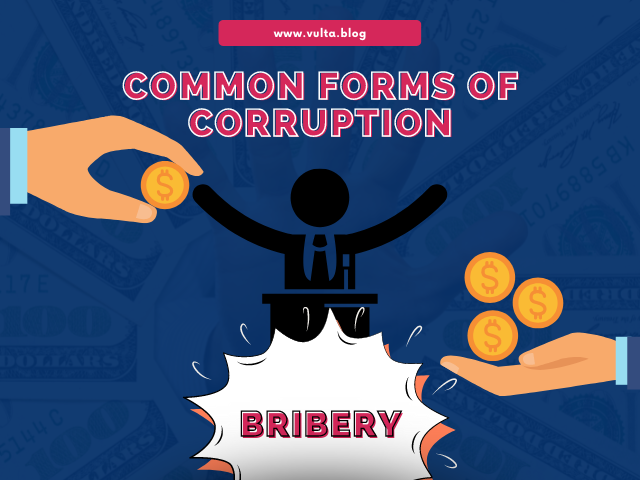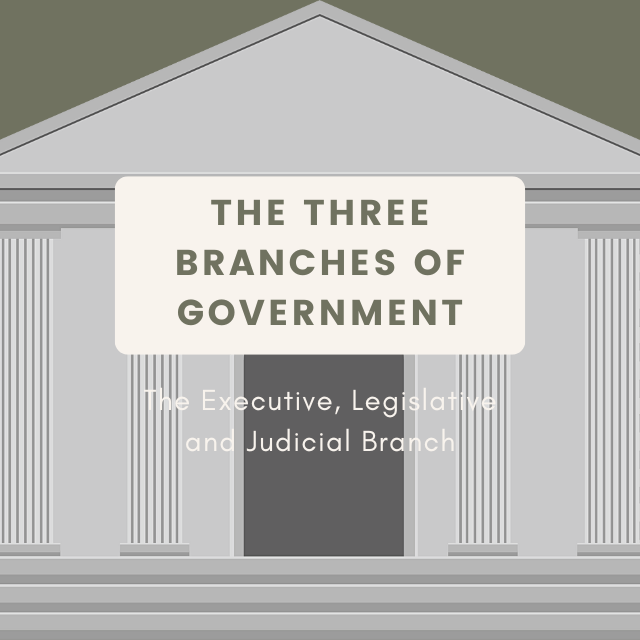Everything to know about Corruption | What is Corruption?
Corruption is the abuse of power or authority for personal or financial gain. It can occur at all levels of Government, from local to national, and it can affect a wide range of public and private sectors.

Definition of Corruption
What is Corruption?
Corruption is the abuse of power or authority for personal or financial gain.
It can occur at all levels of Government, from local to national, and it can affect a wide range of public and private sectors.
The following are common forms of corruption:
- Bribery;
- Embezzlement;
- and nepotism.
The following are the negative consequences of corruption:
- Loss of trust and confidence in the government;
- Undermines the country's law;
- Inefficient or ineffective use of resources;
- Decreased investment and economic growth;
- And increased inequality
The following are the reasons for corruption to occur:
- To maintain the loyalty of the key-supporters;
- Weak Governance;
- Poverty and economic inequality;
- Cultural and societal norms;
- And lack of oversight and enforcement.
Further Details
Common Forms of Corruption
Bribery

Bribery is the act of offering, giving, receiving, or soliciting something of value in exchange for an official act or favor.
Bribery can occur when politicians or public officials accept gifts, money, or other benefits in exchange for making decisions or taking actions that are not in the best interests of the public.
Embezzlement

Embezzlement is the act of misusing or stealing public funds or assets for personal or private use.
Embezzlement can occur when anybody within an organization—usually public officials or any high-ranking corporate officials, misuse their authority to divert public funds or resources to themselves or to their associates.
Nepotism
Nepotism is the practice of giving preferential treatment to friends, family, or associates in matters of employment or decision-making.
Nepotism can occur when politicians or public officials use their influence to secure jobs or other opportunities for their friends or relatives, regardless of merit.
Consequences of Corruption
Loss of trust and confidence in the Government
Corruption can undermine trust and confidence in the Government and in the democratic process, as people may feel that their representatives are not acting in their best interests or that the Government is not accountable to the people.
Undermines the Country's Law
When corruption occurs, it can create the impression that the law can be bought and twisted or that those with sufficient resources can receive special treatment.
Inefficient or ineffective use of resources
Corruption can lead to the inefficient or ineffective use of resources, as public funds or assets may be misused or diverted for personal or private gain.
Decreased investment and economic growth
Corruption can deter investment and economic growth, as businesses may be less likely to invest in a country that is perceived as corrupt or where the rule of law is not enforced.
Increased inequality
Corruption can contribute to income inequality and social injustice, as those who are able to pay bribes or who are connected to powerful individuals are more likely to receive favorable treatment or access to resources.
Reasons for Corruption
To maintain the loyalty of the key-supporters
When it comes to politics, loyalty can be fickle, and it often is, even from family members, the only way to maintain loyalty is to instill fear or provide something more valuable than your competition is offering.
If a Leader cannot find a reliable source of income, then it is only a matter of time until someone else will offer his supporters greater rewards than he can.- From the Dictator's Handbook
The rivals of a government official can offer something more valuable to his key-supporters through corruption, leaving the government official to either trust that his supporters do not turn on him or become corrupt himself, in order to buy-out the loyalty of his supporters.
Weak Governance
A lack of strong Governance makes it easier for corruption to occur, as there may be fewer checks and balances in place to prevent it.
Corruption is more likely to occur in countries where there is a lack of transparency and accountability in the government and where the legal system is weak or ineffective.
Poverty and economic inequality
Corruption is also more likely to occur in countries where there is a large gap between the rich and the poor, as those who are wealthy may be able to use their resources to bribe or influence public officials or politicians.
Those who are struggling to make ends meet may be more willing to engage in corrupt activities in order to make money or to gain an advantage.
Cultural and societal norms
Corruption can also be fueled by cultural and societal norms that condone or accept corruption as a normal part of business or politics.
In some societies, corruption may be seen as a necessary or expected part of how things get done, which can create a culture of corruption that is difficult to change.
Lack of enforcement
When there is lack of oversight and enforcement of laws and regulations, it can be easier for corruption to occur, as there may be fewer consequences for those who engage in corrupt activities.
CONCLUSION
- Corruption can have serious negative consequences for individuals and societies, and it is important for governments and citizens to work together to address and prevent it.
Copyright ©2023 by Marshall Vulta




Comments ()